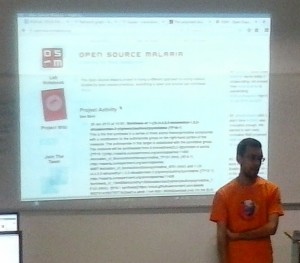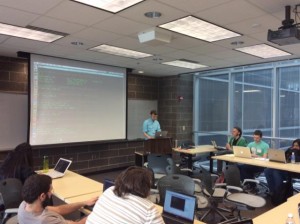Treinamento em dados científicos abertos – Trieste e Beijing com financiamento
Encaminho abaixo a mensagem da organização Committee on Data of the International Council for Science:
Dear colleagues,
Deadlines are approaching for two related but separate training opportunities in research data science convened by CODATA. For both events funding is available, prioritised for participants from less economically developed countries. We are particularly keen to attract:
– female researchers with an interest in developing their data skills;
– participants who are interested in convening similar training activities in their own institution.
Please circulate the information below widely in your networks!
CODATA-RDA School of Research Data Science at the International Centre for Theoretical Physics in Trieste, 1-12 August 2016
Deadline 18 April: http://indico.ictp.it/event/
Contemporary research – particularly when addressing the most significant, transdisciplinary research challenges – cannot be done effectively without a range of skills relating to data. This includes the principles and practice of Open Science and research data management and curation, the use of a range of data platforms and infrastructures, large scale analysis, statistics, visualisation and modelling techniques, software development and annotation and more. We define ‘Research Data Science’ as the ensemble of these skills.
More information on the activity to establish a series of such schools for Research Data Science: http://www.codata.
CODATA International Training Workshop in Big Data for Science, Beijing, 4-17 July
Deadline 18 April: http://www.codata.org/
In today’s data-rich world, streams of digital data are being generated from science facilities and myriad sensors (telescopes, video cameras, traffic monitors, magnetic resonance imaging machines, and biological and chemical sensors monitoring the environment etc). Combined with the increasing ability for large-scale storage, communication and analysis, the Data Revolution presents major opportunities for science. The Science International Accord on ‘Open Data in a Big Data World’ highlights the most important issues to be addressed if these benefits are to be realized. These include the Open Data imperative, the need to maintain the scientific self-correction and the ethical constraints which must be respected. Equally important is the need for open global participation in the benefits of the Data Revolution. Systemic capacity building and targeted training in Big Data and data science are essential if this is to be achieved in countries with emerging or developing economies.
More information on the workshop, associated activities and the application procedure: http://www.codata.org/news/
With very best wishes,
Simon.
___________________________
DATA SCIENCE TRAINING OPPORTUNITIES – FUNDING AVAILABLE – DEADLINE APPROACHING!
CODATA-RDA School of Research Data Science, hosted at the International Centre of Theoretical Physics, Trieste, Italy, 1-12 August 2016: http://indico.
CODATA International Training Workshop in Big Data for Science, Beijing, 4-17 July http://www.codata.org/
___________________________
Dr Simon Hodson | Executive Director CODATA | http://www.codata.org



